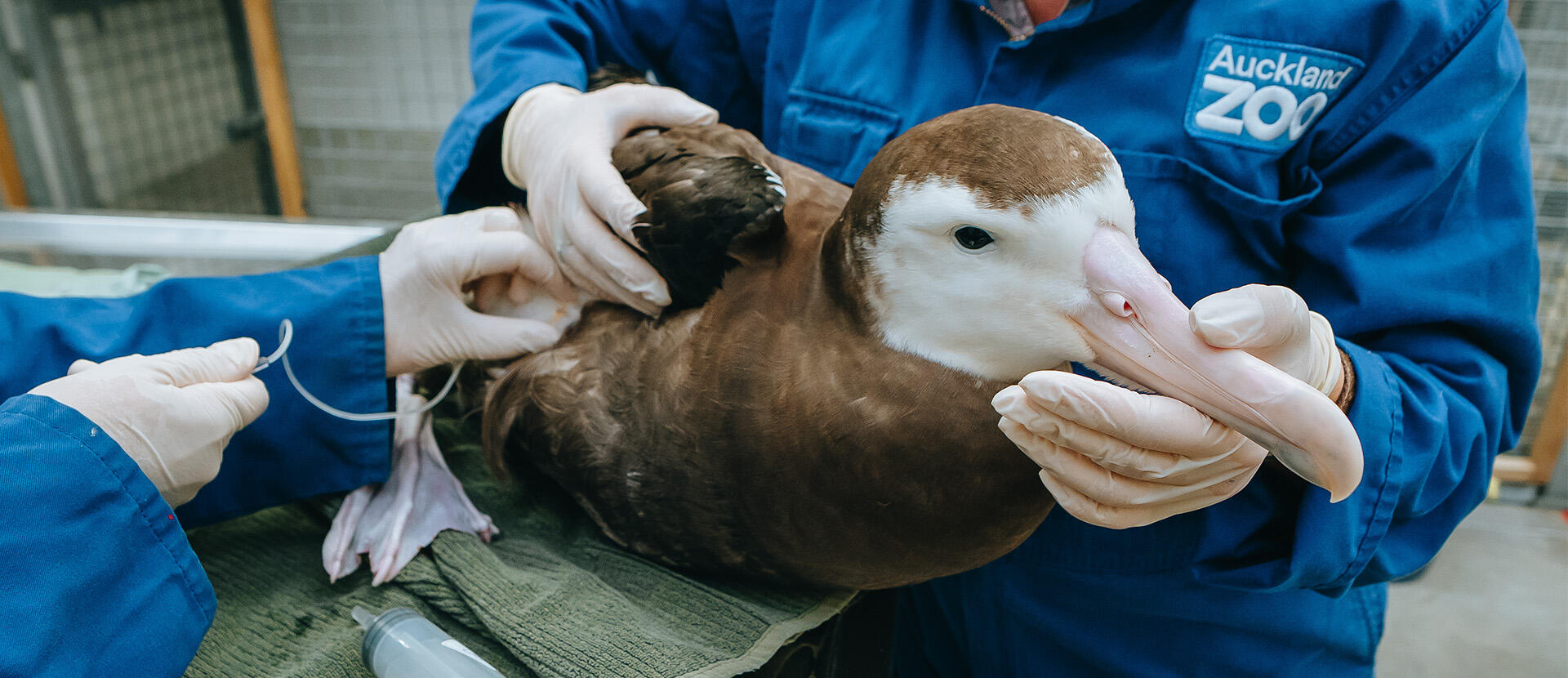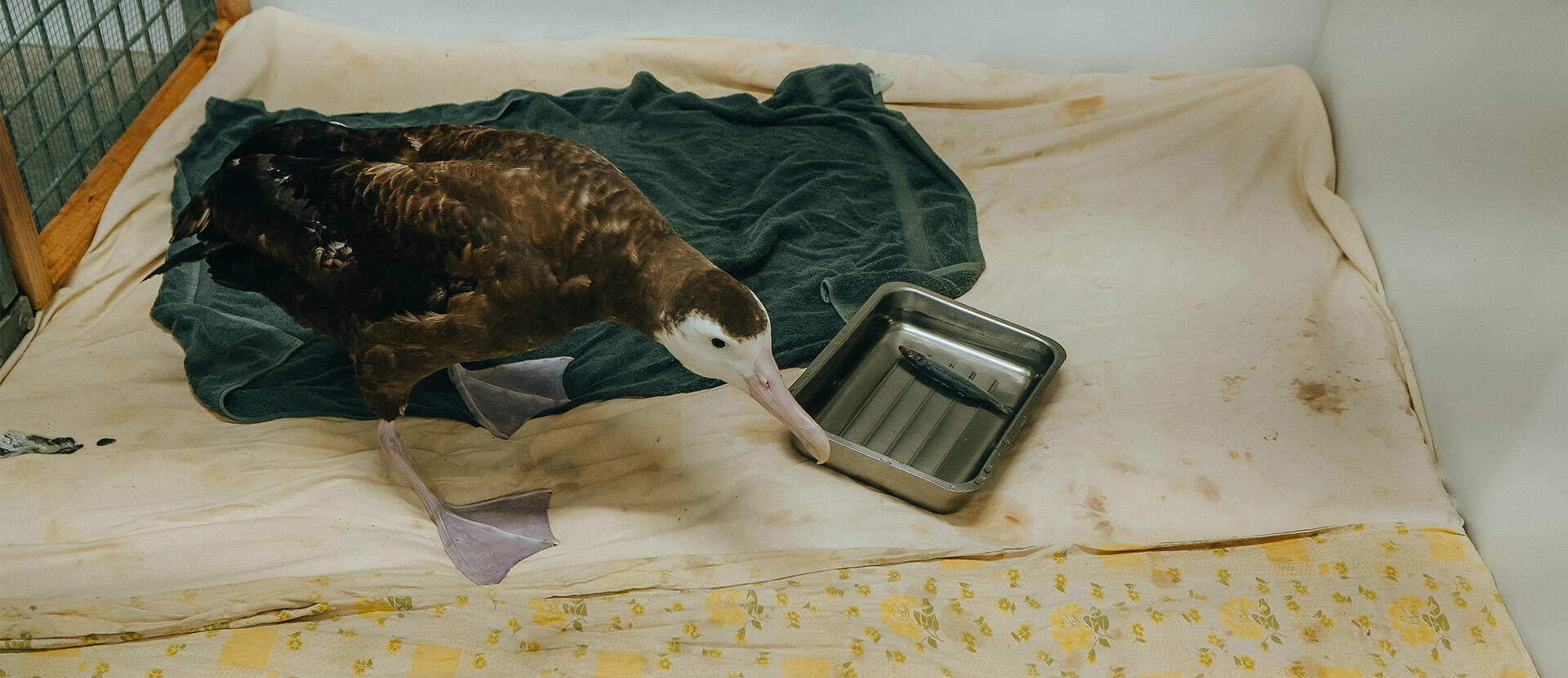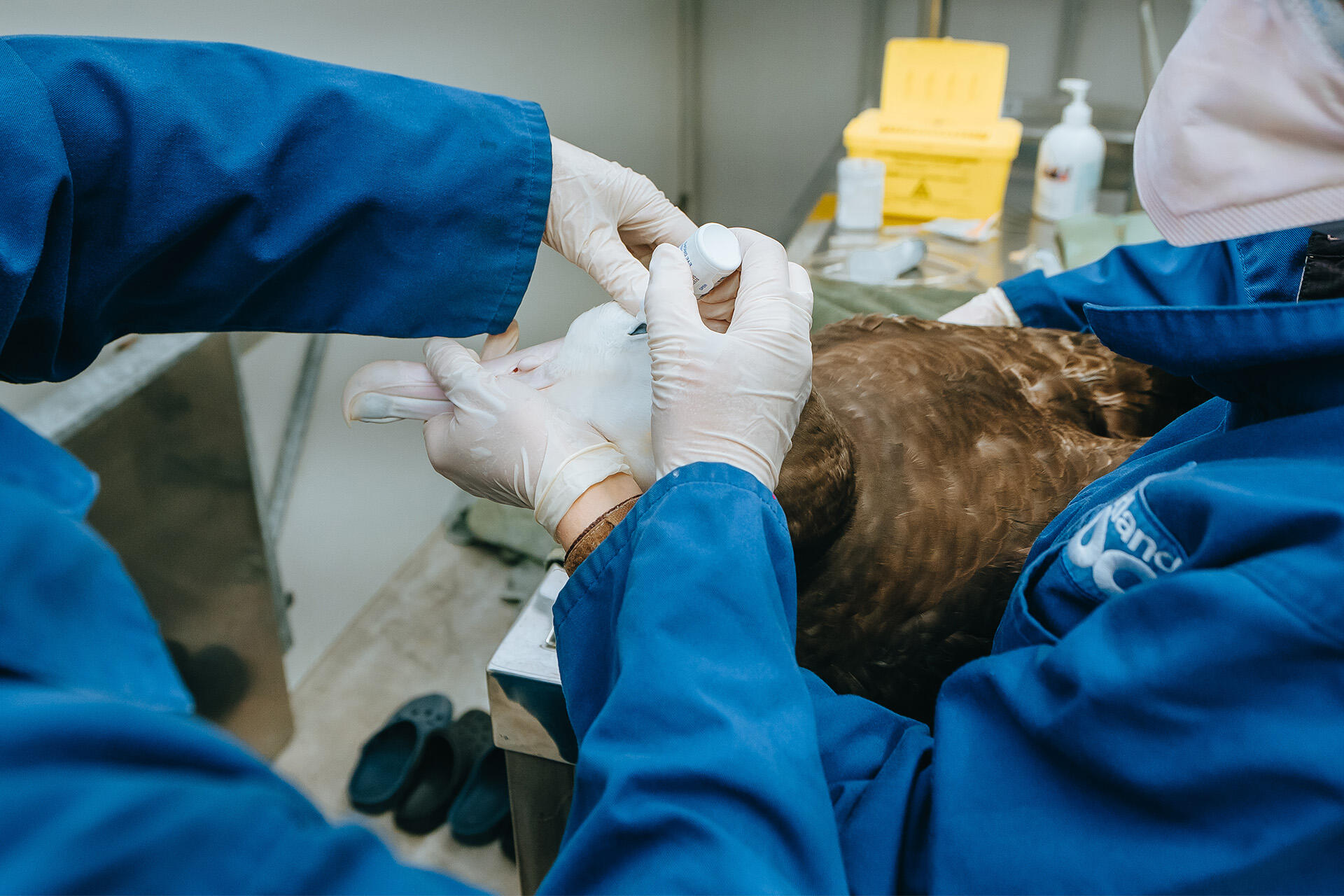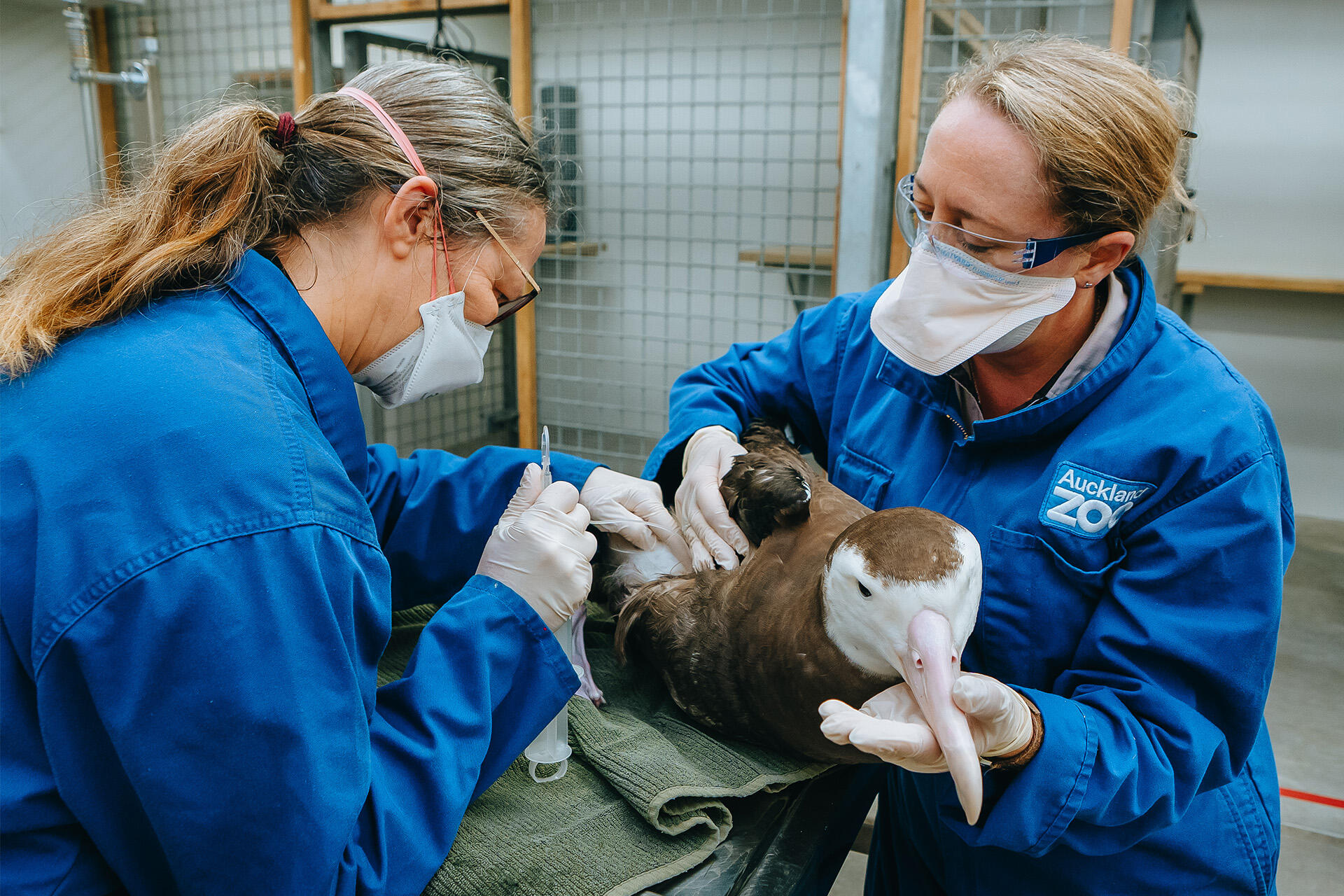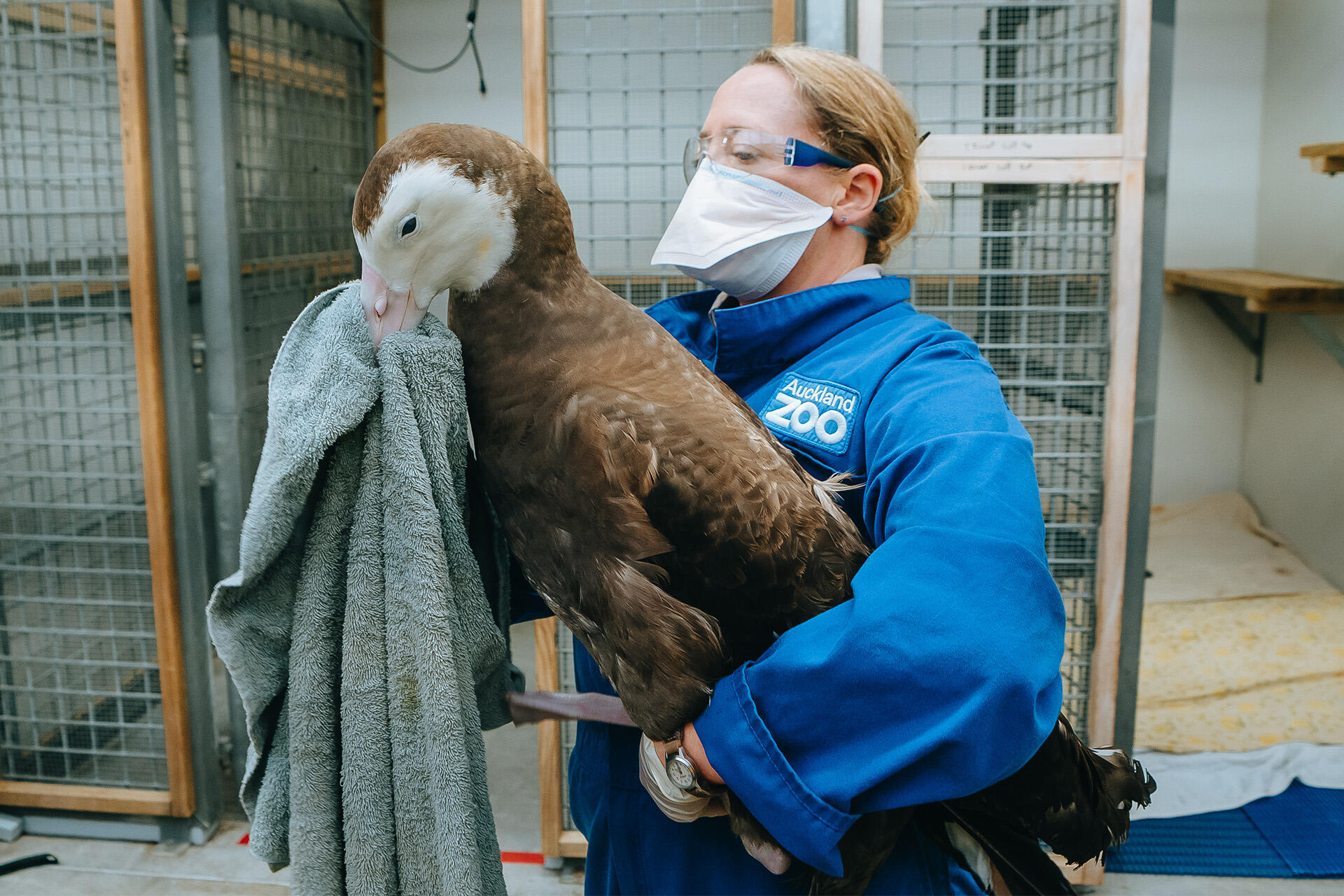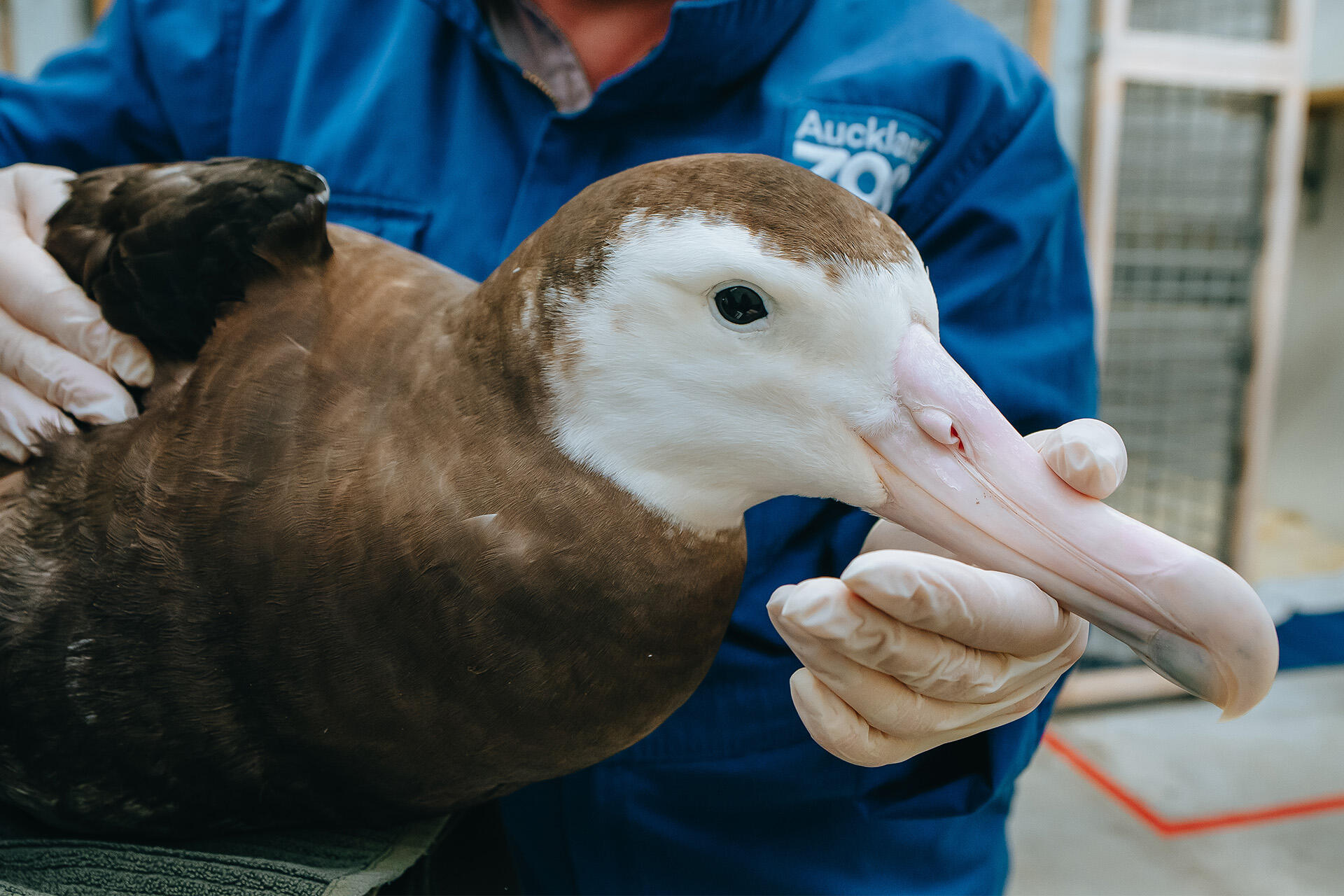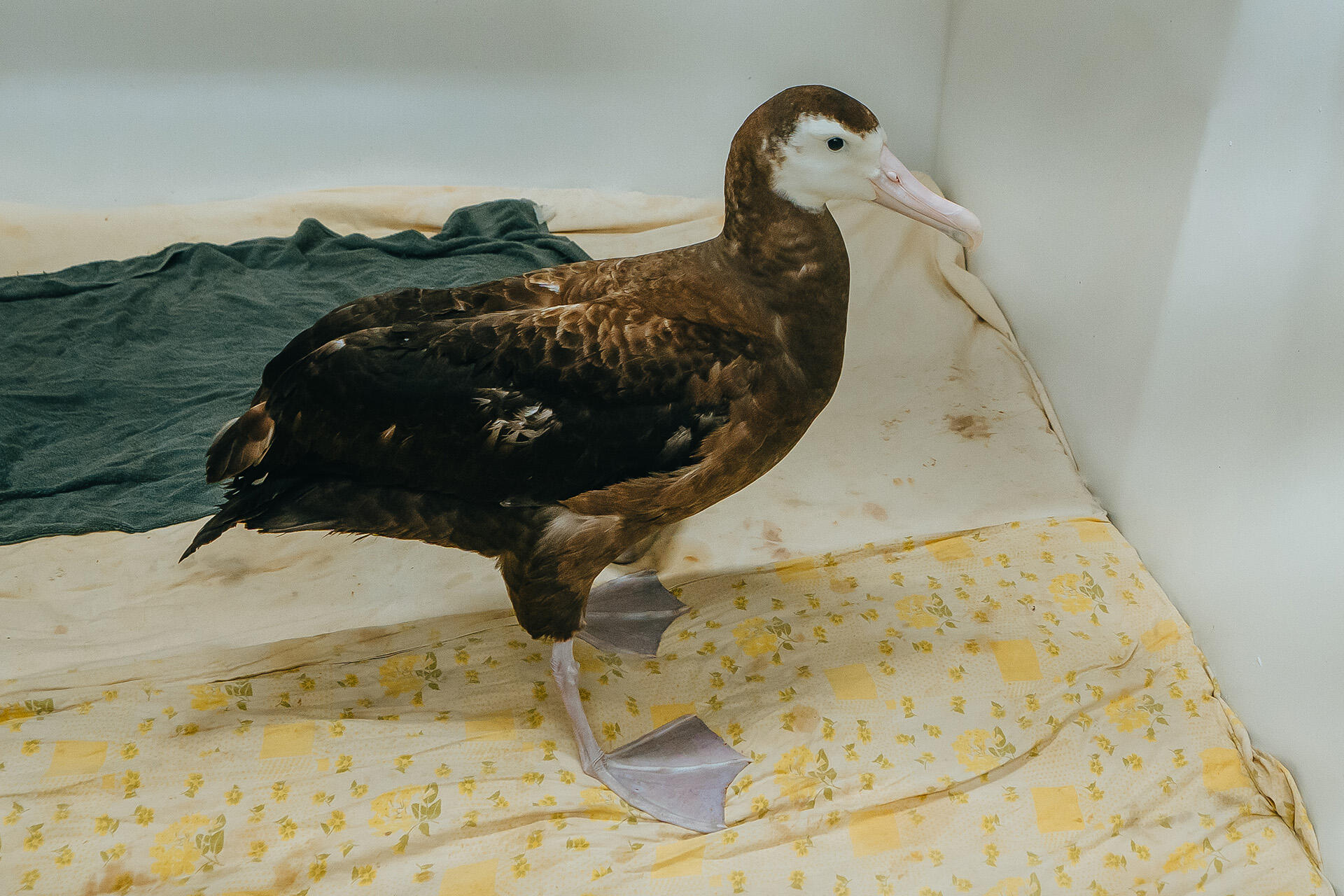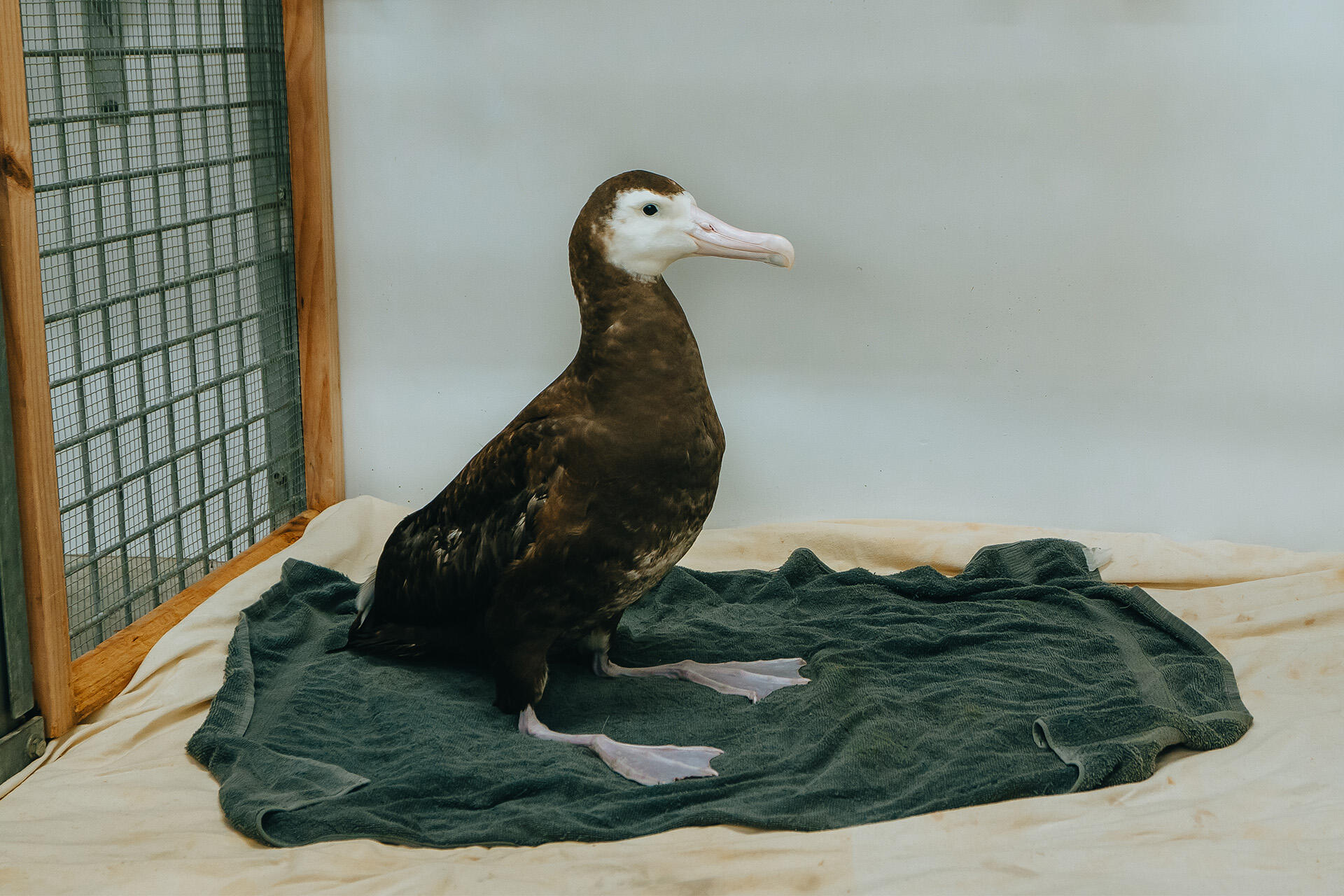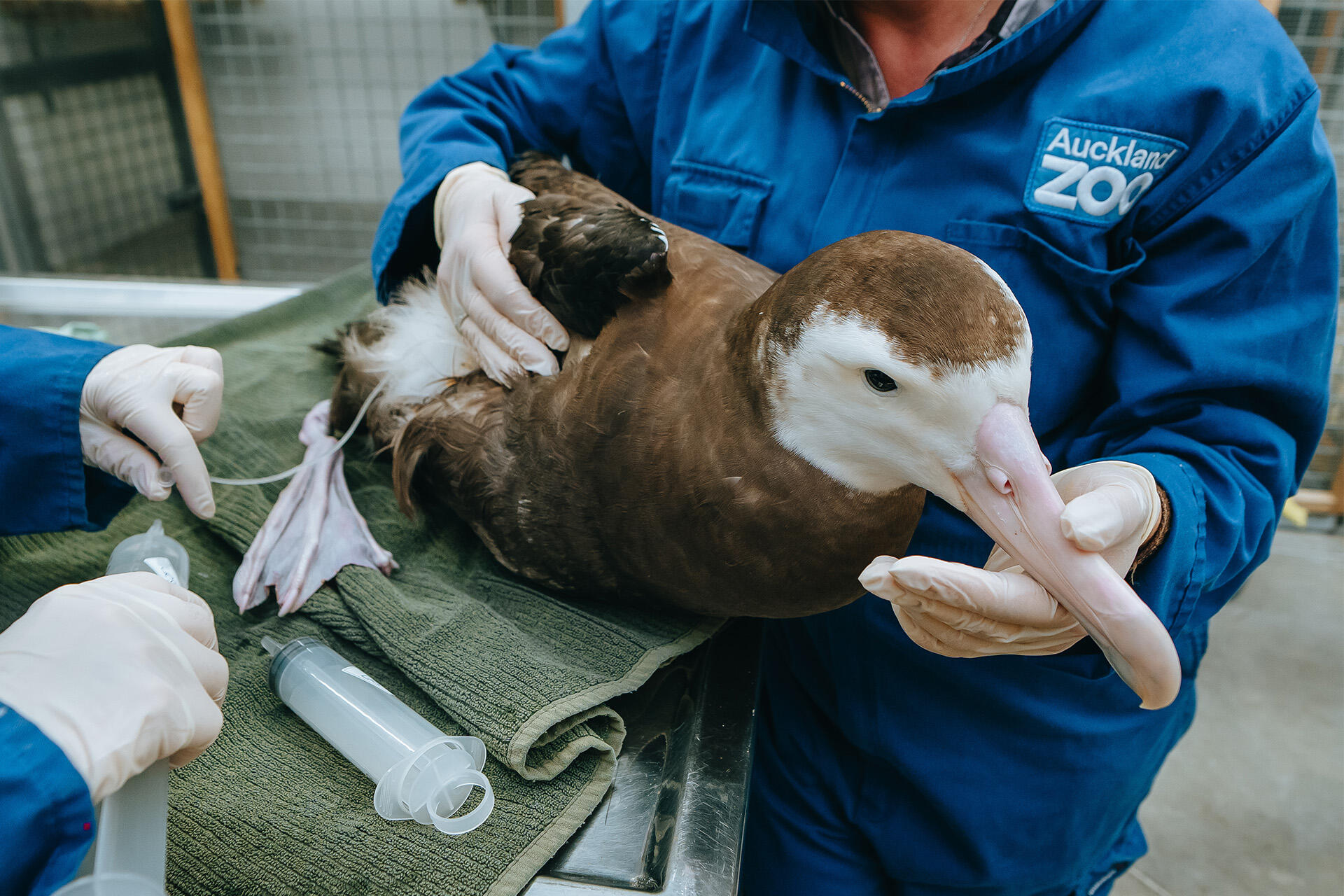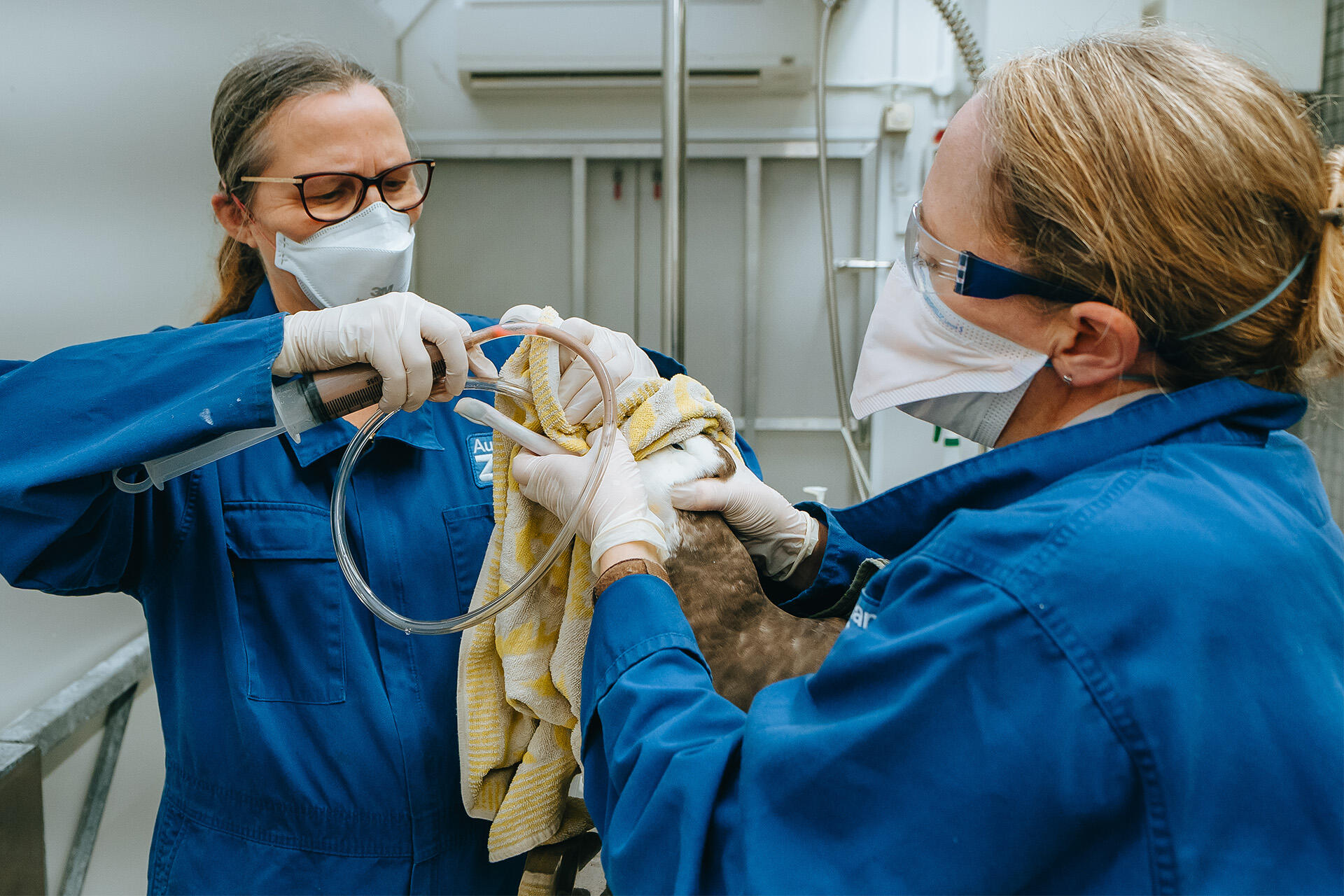Our veterinary team had a very rare patient last week - one of Aotearoa New Zealand’s ‘Nationally Critical’ Antipodean albatrosses, sadly found in a critical condition on Whangamatā beach.
It’s very unusual for this extraordinary endemic manu (one of the world’s largest flying birds with a 3m wingspan!) that breeds almost entirely on subantarctic Antipodes Island, to be found this far north. This albatross was discovered by a member of the public, and our Department of Conservation (DOC) colleagues, who transported it to the Zoo, say it’s likely to have been blown ashore by our recent wild weather.
A juvenile, it was emaciated and dehydrated and had an injury to its left eye. After carrying out a full examination via ultrasound, our vets were able to confirm this was an older traumatic injury that had resulted in a cataract and damage to the deeper layers of this eye, causing total blindness.
Our senior veterinarian, Dr An Pas, says along with blindness in one eye, the bird’s kidneys had started to fail – the result of dehydration and starvation. It was in very poor body condition, weighing just over 4kg, an indication it had been struggling to find food for some time.
“We discussed its condition with other veterinary colleagues in the South Island who see more seabirds. This confirmed our assessment that this bird would not be releasable, and we therefore made the call to euthanise it.
“It’s vital for a species like this to have full sight in both eyes for hunting food, and vision in only one eye would prevent it from adequately foraging and it would slowly starve.”
Human-induced climate change is resulting in more extreme weather events, both locally and globally, and with this, we can expect to see more wildlife struggling.
The best way we can all help if we do come across any native marine species like this at the beach is to call 0800 DOC HOT (0800 362 468) immediately– and DOC’s expert staff will assess the animal(s) and determine the best course of action.
You can also help by ensuring its safety (including from the likes of dogs) without attempting to catch it. Please do not try and feed the animal as sudden feeding will cause serious disease in a starved animal. Taking and supplying photos to DOC and providing details of its exact location is also a great way to help.


